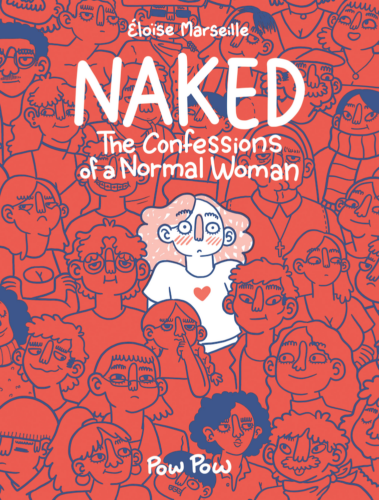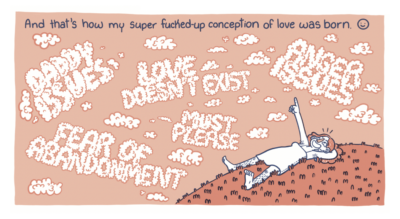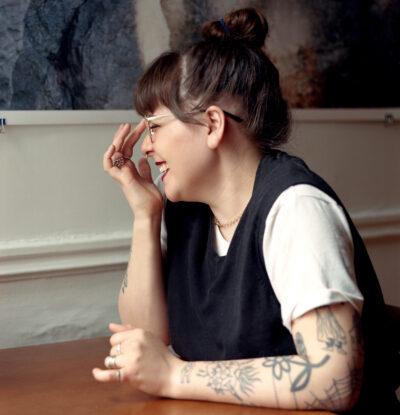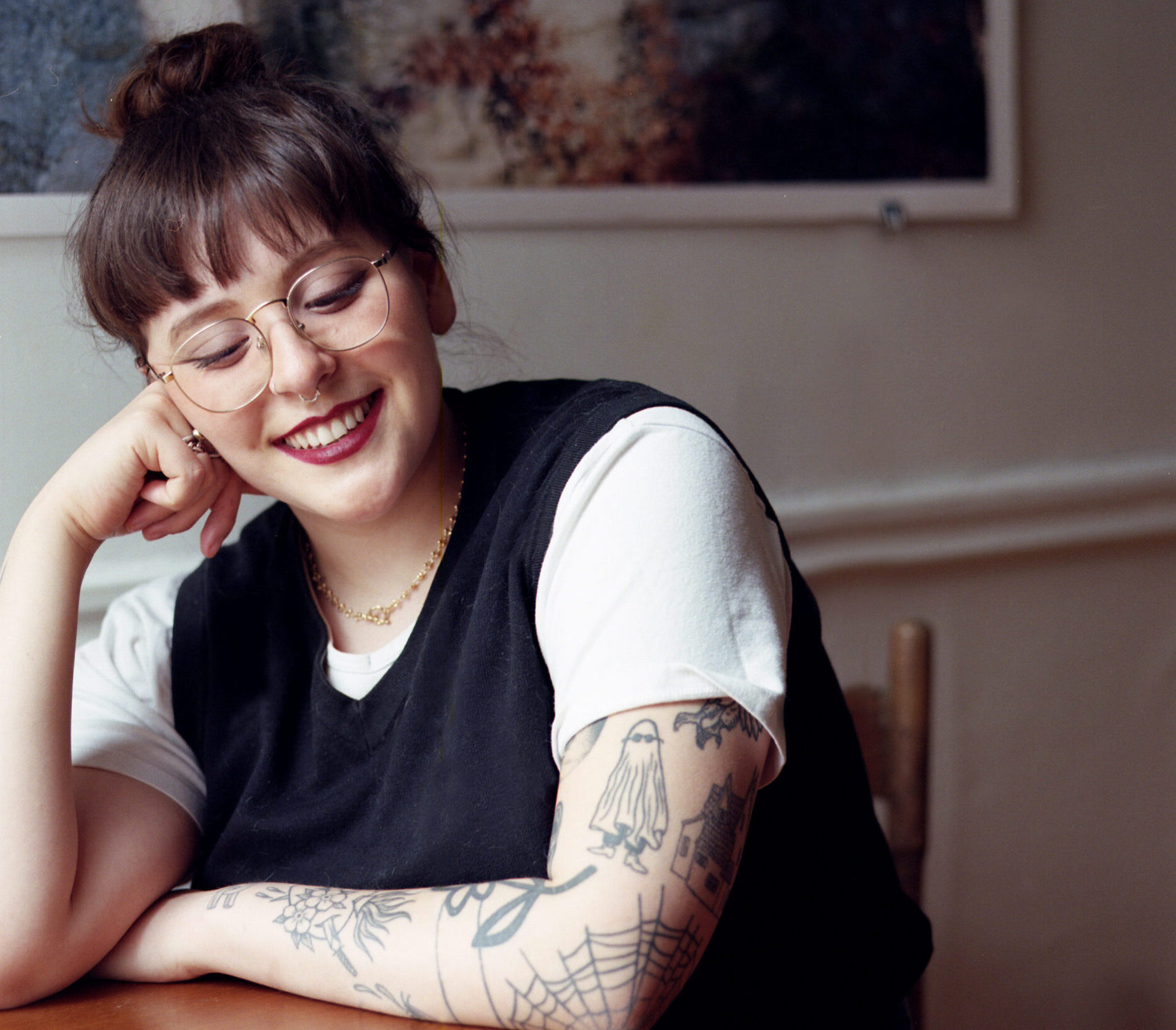Naked: The Confessions of a Normal Woman is an intimate, hilarious and tender graphic novel debut from Montreal-based author Éloïse Marseille.
Naked is the author’s uncensored and vulnerable memoir that examines her sexual education (and miseducation), taking readers along on a journey, from a forbidden first kiss with her female best friend in Catholic school; to her exposure to the extremes of online porn; as well as her navigation of the complexities of love, lust, and the modern hookup. Alongside these adventures (and misadventures), Marseille also takes us along as she explores her own nuanced and complicated relationship with her own body, her sexuality, and herself.

This book was charming, laugh-out-loud funny, and quite touching, and I had a great time reading it, so I was thrilled for the opportunity to interview Éloïse about shame, sex, and her debut memoir.
What inspires you in your writing and illustrating process?
My biggest inspirations come from things in my everyday life: Nature, especially the seasons, my friends and the silly things they say, as well as what I read, and the movies I watch. I always write things that are very close to my personal life. I see art as a great way to externalize and even unveil my inner thoughts and feelings.
In Naked you talk about how our sexuality is so closely linked to shame – of our bodies, our desires, our past, and more. Do you have any advice for readers on how to work through, or learn to live with this shame, while also embracing their sexuality?
I’d say that, for me, what really helped me with my shame was empowerment. That happened through speaking up, and sharing what I found shameful about my past and my life. I feel like putting these issues into words takes power away from them, making them less scary. Talking about my fears and insecurities with people I trust also helped a bunch, because my shame was met with love and validation.

Sex is a subject that often feels taboo, or too vulnerable to discuss with others. While you’ve always felt comfortable talking about it with people you love, now you’re talking about sex, sexuality and your own sexual experiences in a book that’s out and available to the whole world. How does it feel to have something so intimate now available so publicly?
Since the publication of my book, I feel like the stories I shared no longer belong to me. They are out in the world now, open to people’s interpretations and judgment, and both are none of my business. There’s nothing I can do to change these things, and that’s been (surprisingly) quite freeing. Sharing these stories has, in a way, freed me from them.
In your book, you share an example of community and care, where you took care of a drunk friend, in a potentially dangerous situation. Here, you wrote something that stuck with me: “If we don’t look out for each other, who will?” – in a world that can often feel full of pain and heartache, how do you work to prioritize taking care of yourself, and the people around you?
In my opinion, the answer is very simple: Communication. Especially sharing feelings and kind words. I’m the kind of person who texts my friends whenever I think of them; I tell people I really value the time I spent with them after hanging out. I think community exists in those small, simple interactions. I feel the same way regarding self-love and self-care. It may seem weird, but I often find myself talking to the mirror, saying things like “I think I look nice”, or telling myself how I believe that I’m a kind person. It just feels so nice to smile at yourself with genuine appreciation, especially when you’ve had a rough day. After all, my love language is words of affirmation!
Towards the end of the book, you illustrate your own experience confronting, coming to terms with, and embracing your younger self. This was obviously a challenging and cathartic experience in your real life, and a powerful place to end the story, but what was it like to put this experience to paper?
It was quite emotional. I’d say it was the hardest part of the book to write. There was so much I wanted to say, and I didn’t know how. Every time I re-read it, I would get quite emotional, to the point where I didn’t even know if what I had written was good, my emotions just took up too much room. I ended up trusting my gut and telling myself “if it feels good and raw to me, who cares about the rest?”

Why was it important for you to end your story where you did?
This scene ties back to the central theme of shame. In the end, shame is self-hatred. How can you end a story about self-loathing, and self-disgust better than by having your main character give a loving embrace to herself?
I’m a book lover, and I’d love to know: What are you reading these days?
I’m trying to dabble a little into poetry. I just finished rereading Carolanne Foucher’s Deux et demie. I’m also the biggest fan of Simon Hanselmann’s graphic novel series featuring Megg and Mogg, I never get tired of the trashy and depressing (I mean this in the highest of regards) stories he comes up with.
Finally, if there’s one thing you want readers to take from Naked, what would it be?
Try to be kinder to yourself.
Naked: The Confessions of a Normal Woman is out now. Get your copy at your favourite book store.
–
Ameema Saeed (@ameemabackwards) is a storyteller, a Capricorn, an avid bookworm, and a curator of very specific playlists, customized book recommendations, and cool earrings. She’s a book reviewer, a Sensitivity Reader, a book buyer at Indigo Books & Music, and the Books Editor for She Does the City, where she writes and curates bookish content, and book recommendations. She enjoys bad puns, good food, dancing, and talking about feelings. She writes about books, big feelings, unruly bodies, and her lived experiences, and hopes to write your next favourite book one day. When she’s not reading books, she likes to talk about books (especially diverse books, and books by diverse authors) on her bookstagram: @ReadWithMeemz




 Follow Us On Instagram
Follow Us On Instagram
